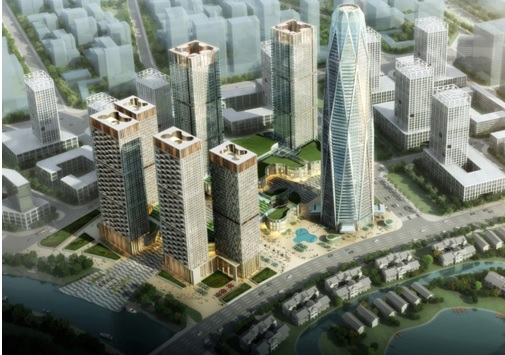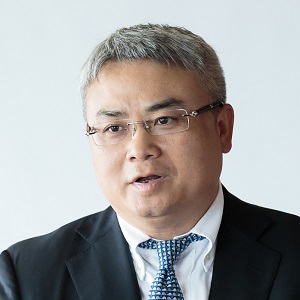 With China Everbright as strategic shareholder, Ying Li has forayed into its maiden development project in a first tier city. Above: its Beijing Tongzhou mixed development project. Artist's impressionYING LI INTERNATIONAL REAL ESTATE is set to ride on the recent measures by the PRC government to boost the real estate sector. With China Everbright as strategic shareholder, Ying Li has forayed into its maiden development project in a first tier city. Above: its Beijing Tongzhou mixed development project. Artist's impressionYING LI INTERNATIONAL REAL ESTATE is set to ride on the recent measures by the PRC government to boost the real estate sector.Recent PRC efforts to support housing market: » Interest rates were lowered twice in the past half a year (by 40 basis points to 5.6% last November and by another 25 basis points to 5.35% in March) » In April, the central bank cut required reserve ratio by 1% to 18.5% » Downpayments on home purchases were lowered. For example, in March, China lowered its minimum down payment for buyers of second homes to 40% (from 60% previously). |
The leading Chongqing real estate developer recently forayed into its maiden project in a first-tier city. The project is expected to generate total sale proceeds of Rmb 23 billion over the next few years.
Ying Li contributed Rmb 559 million (7.8%) to the project, which has a total investment cost of Rmb 7.2 billion.
At a briefing for analysts last week, non-executive and non-independent Deputy Chairman James Pan spoke on the synergy that China Everbright Limited has given to Ying Li.  James Pan is Ying Li's non-executive and non-independent Deputy Chairman. He is on China Everbright Limited's Management Decision Committee and is responsible for its real estate fund, institutional sales and financing business. Photo: Company
James Pan is Ying Li's non-executive and non-independent Deputy Chairman. He is on China Everbright Limited's Management Decision Committee and is responsible for its real estate fund, institutional sales and financing business. Photo: Company
“Ying Li was facing a bottleneck in capital in their aggressive expansion.
“They were building and keeping some of the landmark buildings in the CBD area, and that required huge capital outlay.
"Many commercial banks prefer to lend to state-owned companies.
"As a private company, funding cost was very expensive for Ying Li before China Everbright came in.
“China Everbright brought in capital with its injection of S$284 million in Ying Li last year, thereby reducing its gearing.
“Establishing a retail real estate business in China takes time. You have to attract anchor tenants and give them time to build up their business income.
“You need a special team with ability to run shopping malls, and we are experienced in this area.
“You also need relatively bigger retail assets to have a comparative advantage. We believe Ying Li should diversify its real estate portfolio out of Chongqing.
"We can bring Ying Li projects in tier-one PRC cities, like we have done in the case of the Beijing Tongzhou project.”







